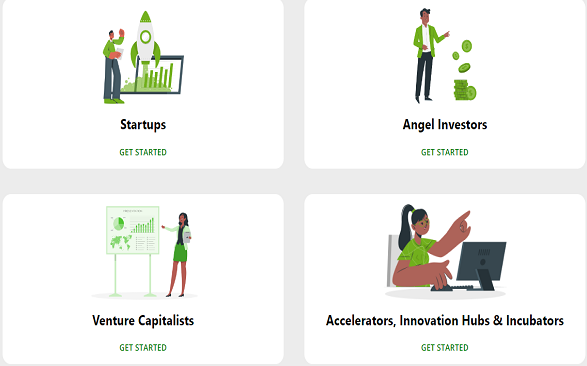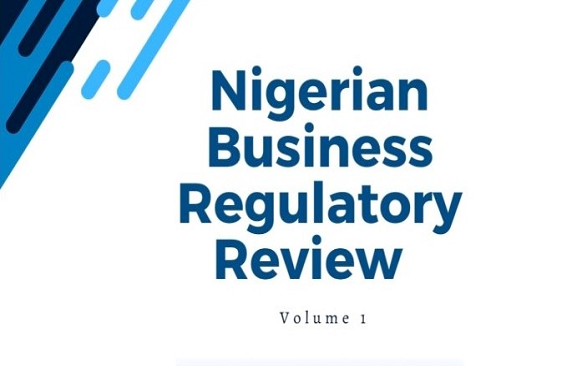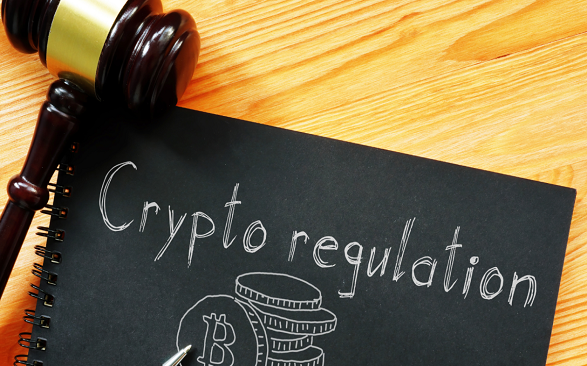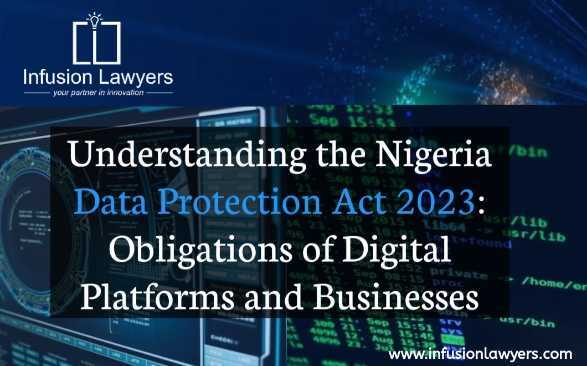The Nigeria Data Protection Commission (NDPC) has reportedly fined Fidelity Bank the sum of ₦555.8 million for data-privacy violations. In this piece, Pamela Victor-Ibitamuno, associate at Infusion Lawyers, shares insights and lessons for data controllers and data processors.

NDPC’s ₦555.8 Million Fine against Fidelity Bank over Alleged Data Privacy Violation: Insights and Lessons

The National Council of Digital Innovation and Entrepreneurship: Imperatives for Nigeria’s Startup Ecosystem
Following the introduction of the Nigeria Startup Act 2022 (NSA), the National Council for Digital Innovation and Entrepreneurship (Council) was eventually inaugurated in April 2023. But the effective implementation of the NSA has been a major concern. In this article, Gabriel Eze, associate at Infusion Lawyers, considers the imperatives for Nigeria’s startup ecosystem.

A Comprehensive Guide on Digital Asset Exchanges in Nigeria: Registration and Operation under the Securities and Exchange Commission Rules
Favour Uche, Associate PDF version downloadable here. 1.0. Introduction The emerging virtual asset ecosystem, including cryptocurrencies and digital assets, has seen remarkable growth in adoption in Nigeria over the years, attracting regulatory attention. As the leading African country in.. Read more

Disconnecting Switching Companies, PSSPs, Super Agents, and Others from NIBSS Instant Payment (NIP) Outward Transfer Platform
With immediate effect, Payment Solution Service Providers (PSSPs), Super Agents (SAs), Switching Companies (Switches), and others are to be disconnected from outward payments on the NIBSS Instant Payment (NIP) platform.

Infusion Lawyers contributes to the maiden edition of the Nigerian Business Regulatory Review (NBRR)
Regulations play a critical role in sectoral growth and development. When stakeholders, including policymakers, regulators, and innovators, get regulations right, this positively impacts a country’s level of growth, development, and competitiveness. This is one of the reasons we are delighted.. Read more

The Need for a Rights-Based Approach to Cryptocurrency Regulation in Nigeria
by Jude Ayua, Associate Download PDF version here. Introduction Cryptocurrency adoption in Nigeria by the private sector came with legal, social, and economic implications as the government attempted—sadly unsuccessfully—to regulate the industry. While the Central Bank of Nigeria (Central.. Read more

ACGAWARDS 2023: Infusion Lawyers awarded ‘Best Blockchain Legal Firm’
Infusion Lawyers has been awarded ‘Best Blockchain Legal Firm of the Year’ at the Africa Crypto Giant Awards (ACGAwards) 2023. The Nominees and the Winner The ‘Best Blockchain Legal Firm’ had 5 nominees, namely: A virtual celebration of excellence, ACGAwards.. Read more

Understanding the Nigeria Data Protection Act 2023: Obligations of Digital Platforms and Businesses
The objective of this article is to provide a general understanding of the NDPA, highlighting its provisions from five perspectives, namely constitutional, legal & regulatory, administrative, technical/organizational, and economic perspectives. I also point out the NDPA’s relationship with previous and other similar legislation. Finally, I outline obligations digital platforms and businesses must comply with in order to safely do business in Nigeria’s growing digital economy.

How the Use of Emoji in Electronic Communication Can Lead to a Binding Contract
One of the trends in electronic communication in today’s world is the use of emoji. An emoji has been defined as “a digital image that is added to a message in electronic communication in order to express a particular idea or feeling.”
Bridging Gaps in eNaira Adoption in Nigeria
In this article, we consider how well the eNaira has fared, considering its adoption rate and related factors. Towards bridging the gaps we identify, we will briefly discuss four (4) major considerations that can boost eNaira adoption.

